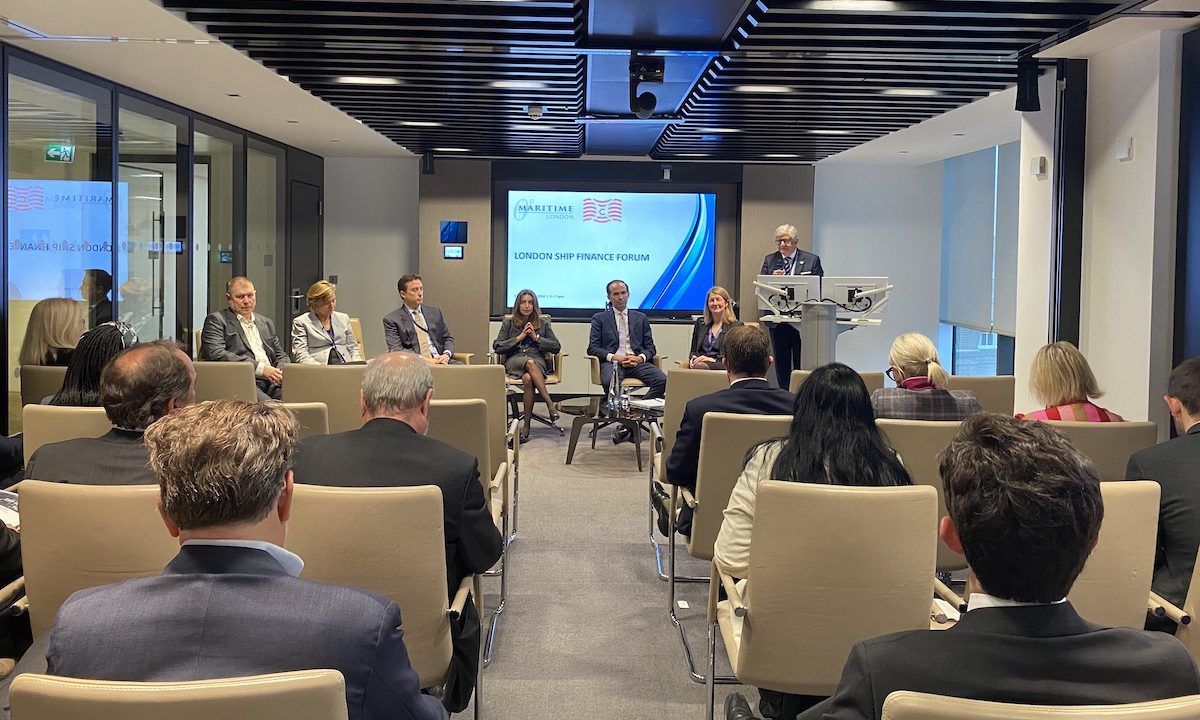Posted on: 15 November 2024
Maritime London held the inaugural London Ship Finance Forum on November 12th. Hosted by Clarksons, the event consisted of two sessions, concluding with a drinks reception.
Maritime London’s Chair Harry Theochari opened the event with welcome remarks, introducing his colleague at legal firm Norton Rose Fulbright, Eleanor Martin, who moderated the first session entitled “Does shipping now have the environment to finance the decarbonisation transition?”.
The five-strong panel, consisting of Gihan Ismail, Director at Marine Capital, Alastair McDonald, Chief Corporate Development Officer at Purus, Dmitri Mikhno, Director of Clarksons, Elias Sakellis, CEO & Director of Australis Maritime and Helen Tveitan, CEO of Carisbrooke Shipping Holdings Ltd, discussed how the global supply chain disruption in recent years created a strong earning environment but questioned whether the strength of owners’ balance sheets, the increased regulatory certainty from the IMO and the EU succeeded in creating favourable enough conditions for new capital to enter the market and accelerate the industry’s decarbonisation. The topics included what “decarbonisation” actually means (or what it should mean) in the context of shipping, what the commercial viability of carbon abatement technologies is at the moment, how retrofitting is viewed, what will make a difference for decarbonisation in this decade.
The panellists then talked about the role of their respective organisation played in investing and/or deploying capital to align with global decarbonisation targets and what could be done to attract new capital.
The second session, entitled “How does shipping and maritime win the battle for capital allocation within banks?”, was moderated by Lindsey Keeble, Managing Partner of WFW. The panel consisted of Stephen Fewster, Global Head, Shipping Finance at ING, Gaurav Moolwaney, Managing Director, Transportation Finance, Global Credit Markets at Standard Chartered Bank, Michael Parker, Chairman, Global Shipping, Logistics & Offshore of Citi and Paul Taylor, Global Head of Maritimes Industries of Societe Generale.
The panellists talked about the current demand for shipping debt, how internal and external regulation has affected capital requirements and borrowing costs for ship finance, and how enhanced transparency requirements was making lending to shipping entities more onerous for everyone. They also considered if this perfect storm of stringent lending regulations, the enhanced requirement for transparency and the requirement for lenders to reduce their carbon exposure would lead to a systemic change in the way that the shipping industry was structured.




